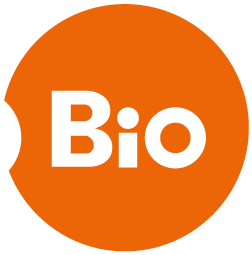Louis Pasteur once warned against succumbing to a “barren skepticism.” But what does it mean for skepticism to be “barren”?
Barrenness connotes a lack of vitality or growth or even emptiness. Such a state seems incompatible with life sciences, where replication and flourishing are the signs of vitality. Excessive skepticism can taint one’s research and career, contaminating the pursuit of knowledge.
Suspicion and You
Of course, not all propositions are above suspicion. Powerful medicines, for example, must be administered with caution to avoid harm, and some drugs may prove harmful even in small doses after thorough trials.
Interestingly, the term “dubious” can refer to both objects and subjects. A proposition can be deemed dubious, meaning it cannot be relied upon.
Enjoying this article? Get hard-won lab wisdom like this delivered to your inbox 3x a week.

Join over 65,000 fellow researchers saving time, reducing stress, and seeing their experiments succeed. Unsubscribe anytime.
Next issue goes out tomorrow; don’t miss it.
On the other hand, a person can be described as dubious, indicating they have hesitance or doubt towards a proposition. The question then arises: are you the subject or the object of your skepticism?
It is natural to fear the unknown, and skepticism may have served as a protective shield for you before. Letting go of it may seem daunting, as you fear being deceived or misled, which could adversely impact your research or even your career.
How to Let Go of Skepticism
When venturing into the unknown, it may be wise to stay close to the known. Start by testing the waters with something that won’t have severe consequences if you are disappointed. Let’s use the example of ordering a new dish from a restaurant menu. A bad outcome might be spending a few dollars, finding the food not to your liking, and still feeling hungry.
When disappointment occurs (as it sometimes does), the next step is to order something else new from the menu. You begin to realize that the cost of disappointment is not too high. As you gain confidence, more opportunities will arise for you to genuinely investigate without skepticism. You can then transfer this confidence from the lunch counter to the lab.
How Much Skepticism is Healthy?
How does this relate to the commonly used phrase “a healthy dose of skepticism”? How much skepticism is enough? How much is too much? What is the right dosage for a healthy dose of skepticism?
The answer: None.
None? But does that mean you must be gullible or naive? Of course not. The issue lies with the inherent nature of naked skepticism. It is rooted in doubt and assumes falsehood. It is inherently closed and demands an overwhelming burden of “proof” to challenge its preconceived notions.
Replace Skepticism with Inquiry
Let’s consider using a more nuanced word, as words do matter. Let’s replace “skepticism” with “inquiry”. Inquiry seeks to discover without preconceived notions. It is open to follow the trail of investigation wherever it leads.
Let’s rephrase the question with our new word. What constitutes a healthy dose of inquiry?
A healthy dose of inquiry is one that leads to satisfaction and wholeness. Are you at peace that the completeness, integrity, and harmony of your inquiry align with the data, the facts, and the truth?
If so, you can conclude your inquiry and accept the findings, even if it requires a radical departure from previously held beliefs or conclusions. With a healthy dose of inquiry, you will feel liberated to do so.
How to Start Your New Framing
You probably know some fellow researchers who are like Sam Spade of film noir fame: hard-boiled, cynical, burned by harsh past experiences. Alternately, you likely know some experienced people who have never lost their guileless wide-eyed wonder of the miracle of life. You can certainly learn from the valuable experience of the former. But don’t neglect to implement the strength and humility of the latter.
As Dr. David R. Hawkins asserts in his book “Truth Vs. Falsehood – How To Tell The Difference,” skepticism is not conducive to supporting life. Inquiry, on the other hand, is. Challenging anything that is unclear to you is not a bad idea, as long as you approach it with the right attitude, seeking expansion and understanding.
For more advice to become a healthier and happier scientist, check out my podcast The Happy Scientist.
You made it to the end—nice work! If you’re the kind of scientist who likes figuring things out without wasting half a day on trial and error, you’ll love our newsletter. Get 3 quick reads a week, packed with hard-won lab wisdom. Join FREE here.






